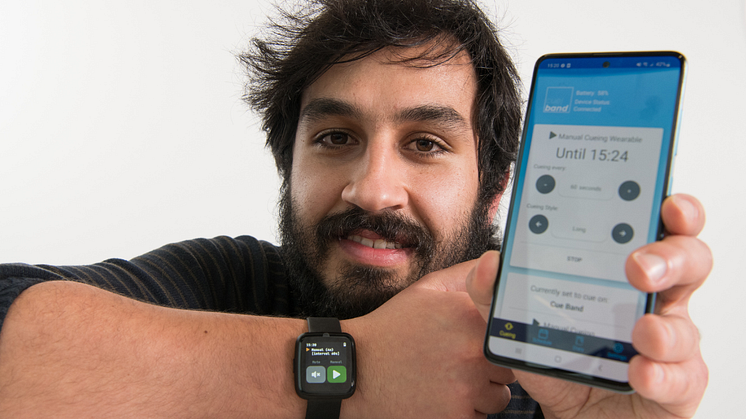
Press release -
Leading research into better management of Parkinson's pain
A Northumbria University researcher will receive around £300,000 in fellowship funding to investigate the impact of pain in people with Parkinson’s and improve how this pain is managed.
Dr Jenni Naisby, a Senior Lecturer in the Department of Sport, Exercise and Rehabilitation, has received a slice of £1.2 million in funding from the Medical Research Foundation as part of four newly-awarded research fellowships.
Three more exceptional mid-career researchers from King’s College London, University College London (UCL) and the University of Bristol will also receive funding to help change the lives of people suffering with chronic pain. The fellowships aim to improve pain diagnosis, treatment, and recovery, for the vast number of people who live with unrelenting pain.
Pain can affect up to 85 per cent of people with Parkinson’s, having a significant impact on movement, mood, and quality of life. Despite this, Dr Naisby’s earlier work has shown a lack of awareness among healthcare professionals, and a dearth of existing evidence to help guide treatment.
Dr Naisby will co-design a pain management toolkit for people with Parkinson’s, and a training package for healthcare professionals, before testing these resources in clinical practice.
“We have an extremely limited understanding of how pain in Parkinson’s behaves over time and whether it interacts with other symptoms,” says Dr Naisby. “We’ll be speaking directly to people with Parkinson’s, their carers, and healthcare professionals, to better understand these issues and develop resources that will improve how pain in Parkinson’s is managed.”
Dr Naisby will share her research findings through blog posts, a video animation, and a public event aimed at people with Parkinson’s.
More than a third of the UK population – around 28 million people – are thought to be affected by chronic pain, yet historic under-investment in pain research has led to a gap in our understanding, as well as a lack of effective treatment options.
Chronic pain can have a devastating impact on nearly all aspects of everyday life, both for people directly afflicted by pain and their families. It affects mobility, mood, sleep, and appetite, and can lead to mental health issues such as anxiety and depression.
Chronic pain also carries a large societal and economic burden by putting extra strain on healthcare systems, as well as contributing to unemployment and work absence due to sickness. This is estimated to cost the UK economy billions of pounds every year.
Topics
Categories
Northumbria is a research-intensive modern university with a global reputation for academic excellence. Find out more about us at www.northumbria.ac.uk --- Please contact our Media and Communications team at media.communications@northumbria.ac.uk with any media enquiries or interview requests ---











